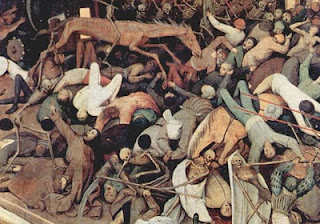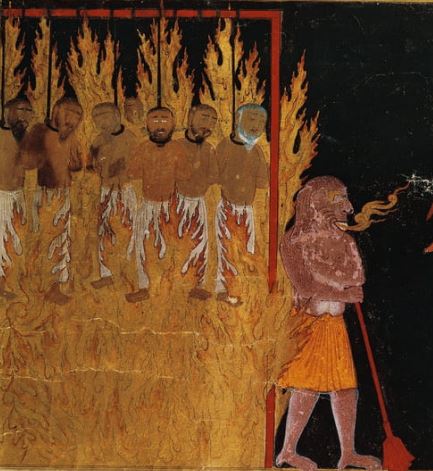
The East occupies the top position in infringing upon humane values through its swift implementation of coercive sentences that often lead to the death penalty. This is often done through religious grounds, regardless of the occurrence and established fact of those crimes, which are attributed to its victims and irrespective of whether they were unintentional or premeditated, or whether the accused are innocent people who had nothing to do with it at all.
THE CONSEQUENCES OF THESE rulings constitute a social tragedy for the families of those executed. These can include individuals with mental disabilities, and many capital sentences may be applied following unfair, sham trials, while many others may spend years awaiting an unjust retribution, according to legislative backgrounds of a religious nature that directly overlook the social aspect of punishment. Human rights organizations have also stood against any method in which the death sentence is carried out or methods where confession is forcibly extracted.
When reviewing religious history – the divine conception of law that stands in opposition to positivist rulings – we see that the philosophy behind religious penalties often included punishment of non-believers, and that by means of a physical torture:
The adulterer and the adulteress, scourge ye each one of them (with) a hundred stripes. And let not pity for the twain withhold you from obedience to Allah, if ye believe in Allah and the Last Day. And let a party of believers witness their punishment.[1]
This establishes the purpose of inflicting physical pain, as well as defaming the perpetrator before his or her body reaches the Afterlife, where it will go on to suffer in Hellfire the rest of the deterrent punishment.
The end of this punishment – which is specific to a this-worldly act – is the realm of recompense and reparation, that is, the Hereafter. This type of torment is aimed at revenge or teaching a lesson, as this punishment is seen by religious thought as the necessity for the adulterer to suffer before his death. There is thus no other purpose to ruling his torture than acting out revenge against him, defaming him and denigrating his status among believers. This matter is contrary to man-made punishments in that these do not set out to destroy a person’s sense of his social standing, and do not envisage inflicting punishment on the body but rather on his conscience. This is more just, since the aim is for the perpetrator to feel his crime and take the opportunity to reform himself during a period where he is deprived of his liberty. Whereas by humiliating him and denigrating him he loses his self-confidence and he turns into an inveterate criminal with no connection henceforth between himself and society around him.
If we turn to the Qur’anic text on worldly punishments in Surat Al-Ma’ida:
As for the thief, both male and female, cut off their hands. It is the reward of their own deeds, an exemplary punishment from Allah. Allah is Mighty, Wise.[2]
the punishment is more severe, since through this religious text a permanent disability is represented, one whereby the individual is turned into a failing limb unable to produce or take on the responsibility of supporting himself and his family. The divinity has thus ignored the negative results of placing obstacles to his means of providing, and for the one responsible for his life such a recompense will last for the entire life of the now handicapped individual. It is a form of ‘exemplary punishment’, so that he becomes a public lesson. It is thus a most severe case of humiliation for the individual, both for his body and for his sense of self.
An example of deterrent punitive legislation occurs in Surat Al-Nisa:
And as for those who are guilty of an indecency from among your women, call to witnesses against them four (witnesses) from among you; then if they bear witness confine them to the houses until death takes them away or Allah opens some way for them. And as for the two who are guilty of indecency from among you, give them both a punishment; then if they repent and amend, turn aside from them; surely Allah is Oft-returning (to mercy), the Merciful.[3]
This is an encouragement to immoral acts in illicit and religiously illegitimate relations, since it makes it difficult to verify the fact of adultery, given that it requires the presence of four witnesses to establish the case. This cannot possibly take place for the mere fact that such an act is often carried out secretly between the woman and the man. Therefore the requirement for the presence of four witnesses to prove the case only serves to demonstrate this encouragement to commit adultery.
The Qur’an refers to retaliation for a death, as indicated in Surat Al-Baqara:
O you who believe! retaliation is prescribed for you in the matter of the slain, the free for the free, and the slave for the slave, and the female for the female, but if any remission is made to any one by his (aggrieved) brother, then prosecution (for the bloodwit) should be made according to usage, and payment should be made to him in a good manner; this is an alleviation from your Lord and a mercy; so whoever exceeds the limit after this he shall have a painful chastisement.[4]
Social division was based on class, and society was divided up between the free and the slaves, even though the concept of blood money contradicted the text of Surat al-Hujurat:
O mankind! Lo! We have created you male and female, and have made you nations and tribes that ye may know one another. Lo! the noblest of you, in the sight of Allah, is the best in conduct. Lo! Allah is Knower, Aware.[5]
This divinely stipulated social justice and equality in rights alters when categorising the nature of punishment, in that it differentiates between people according to their ethnic or class origin. This puts the divine Text to the test since it is a personal artifice that has nothing to do with divine revelation. The divine stipulation actually makes a strong distinction at the expense of the balance of social justice, as appears in Surat Al-Nisa:
Men are in charge of women, because Allah hath made the one of them to excel the other, and because they spend of their property (for the support of women). So good women are the obedient, guarding in secret that which Allah hath guarded. As for those from whom ye fear rebellion, admonish them and banish them to beds apart, and scourge them. Then if they obey you, seek not a way against them. Lo! Allah is ever High, Exalted, Great.[6]
Social injustice thus turns into a man’s domination over woman and his wielding of authority over her; if she refuses to obey, then he is to leave her marital bed and beat her. This infringes upon the scales of criminal law and punishment between the two parties, in that the issue is weighted towards prioritising the rights of the man and denigrating the civil and religious rights of the woman, all at the expense of her existence as an individual.
The Qur’anic text persists in affirming injustice and in empowering the oppressor – justifying his behaviour and finding justifications for not subjecting him to social justice, as stated in Surat Al-Nisa’:
And it does not behoove a believer to kill a believer except by mistake, and whoever kills a believer by mistake, he should free a believing slave, and blood-money should be paid to his people unless they remit it as alms; but if he be from a tribe hostile to you and he is a believer, the freeing of a believing slave (suffices)…[7]
It thus permits manslaughter by the act of freeing a slave. This – were one to follow it – would simply cancel out the role of positive law.

Suggested Reading
The religious text stipulates the severing of the hand of the thief, but contents itself with the flogging of the adulterer, both male and female – as mentioned in Surat Al-Nur – as punishment for adultery. It is assumed that the punishment for adultery (a forbidden act because it causes lineage to be mixed), is to be imprisonment in place of public defamation. Religious thought, meanwhile, oversteps punishments regarding social relations, broadening the focus towards killing those who are transgressing against the divine will rather than civil and national laws. This is the divine being according to the Surat al-Ma’ida:
The only reward of those who make war upon Allah and His messenger and strive after corruption in the land will be that they will be killed or crucified, or have their hands and feet on alternate sides cut off, or will be expelled out of the land. Such will be their degradation in the world, and in the Hereafter theirs will be an awful doom.[8]
This type of severe punishment awaits those who fight against God and His invisible creed: their dismemberment or slaying or banishment.
[1] Qur’an XXIV (al-Nur), 2.
[2] Qur’an, V (al-Ma’ida), 38.
[3] Qur’an IV (al-Nisa), 15-16.
[4] Qur’an II (al-Baqara), 178.
[5] Qur’an, XLIX (al-Hujurat), 13.
[6] Qur’an IV (al-Nisa), 34.
[7] Qur’an IV (al-Nisa), 92.
[8] Qur’an V (al-Ma’ida), 33.
Main image: The torment of Hellfire in the afterlife, as seen by the Dutch painter Pieter Breugel the Elder, c.1525-1569

